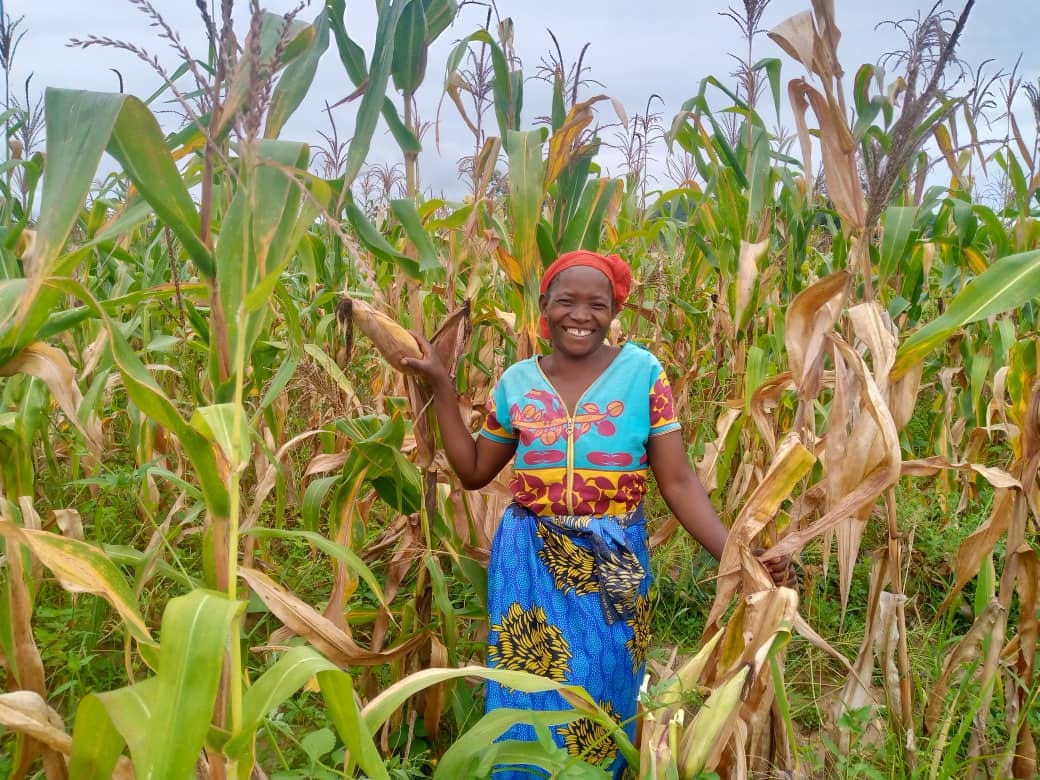Manure Helping Malawian Widows, Single Mothers Beat Food Insecurity
"No fertilizer, no harvests. Our farmlands require fertilizers to bear fruitful harvests," said Jere of Somfula village in Mzimba district.
MZIMBA, Malawi— When Francy Jere's husband died in 2010, the future looked bleak for the 45-year-old widow with five children. Without her spouse's income to purchase fertilizer, a crucial input for boosting harvests on degraded farmland, Jere struggled to grow enough to feed her family, writes Victoria Yande.
"No fertilizer, no harvests. Our farmlands require fertilizers to bear fruitful harvests," said Jere of Somfula village in Mzimba district.
While Malawi's government subsidizes fertilizer for some poor households, many like Jere never received coupons.
Expensive commercial fertilizer proved unaffordable.
"In a farming field that one could harvest 20 bags if fertilizer was applied before, I would only manage 3 bags without applying chemical fertilizers. It was really hard to feed my family," she said.
But in 2023, Jere was among widows and single mothers trained by Luke International in composting livestock manure — transforming her yields and livelihood.
The NGO provided pigs, and Jere now combines the animals' droppings with crop residues to create nutrient-rich compost for garden plots and depleted fields, replicating fertilizers' productivity boost using organic techniques.
"Last growing season, I managed to grow 20 bags of 50 kilograms of maize from the same field that could only give me 3 bags," Jere said. Surplus harvests provide income from sales.
Luke project officer Franklyn Munda said the initiative aims to promote food security and financial independence among vulnerable rural women through sustainable farming methods.
"The project is transforming lives of most households...We have seen many families achieving economic independence from a background where they were languishing in financial problems," he said.
The training covers livestock rearing, composting manure and improved farming practices. Beneficiaries receive breeding pigs to multiply herds through a "pass-on" system supplying other participants.
"The organization gave us livestock such as pigs. So we use droppings from pigs in our manure production which we apply to our agriculture crops to harvest more," Jere explained.
She said the program enabled her to start a backyard garden where composted manure yields vegetables for household consumption and sales.
"From the finances generated from my garden I buy clothes for my children and also support them whenever requests for developmental funds are requested from their school," Jere said.
For Jere, composting opened opportunities. "This program is a life saver," she said. "It is transforming lives typified by our lives here."
Munda said he hopes to scale the project regionally "so that many struggling farmers and less privileged people benefit as it is transforming lives."
While chemical fertilizers boost soil fertility, they are often inaccessible for Malawi's poorest smallholder farmers. Composting manure provides a low-cost, sustainable alternative — crucial as rising prices and supply disruptions exacerbate food insecurity.
The organic techniques also promote environmentally-friendly agriculture by recycling waste, reducing dependency on fossil fuel-derived fertilizers and rebuilding degraded soils' health and productivity.



